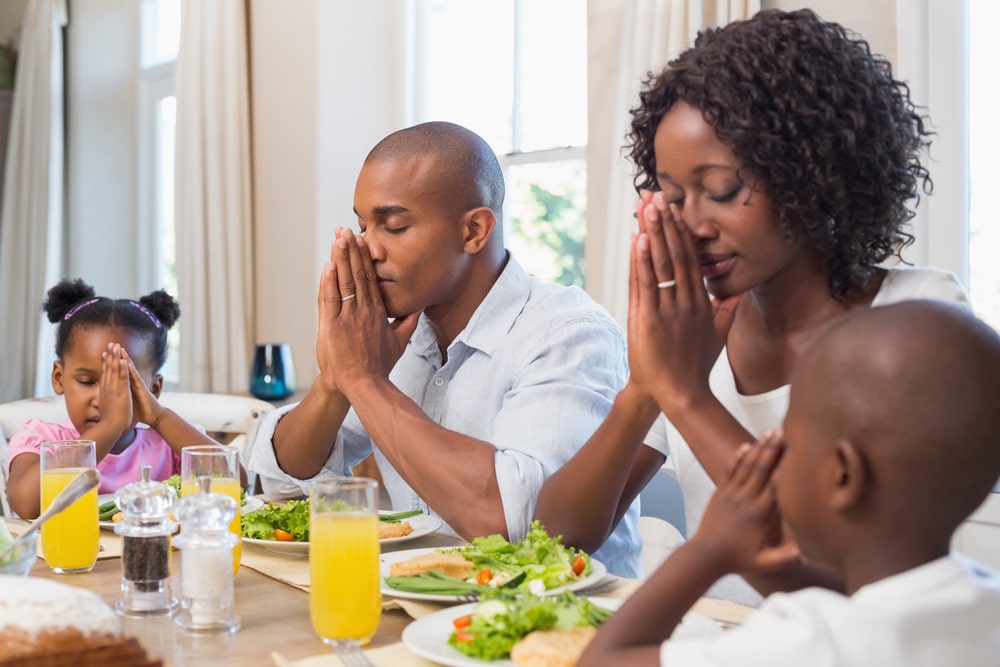During times of grief, we often turn our focus inward. While this tendency is natural, it may also lead to feelings of isolation and intense, singular focus on the loss we have suffered. Cultivating a lifestyle of gratitude can help us better process the losses in our lives by moving our eyes beyond our pain, allowing us to see the good things in life that still remain.

Piglet noticed that even though he had a Very Small Heart, it could hold a rather large amount of Gratitude. – A.A. Milne, Winnie-the-Pooh
Let’s Start With a Definition
To begin with, what is gratitude? The Harvard Medical School describes it this way: gratitude is “a thankful appreciation for what an individual receives, whether tangible or intangible. With gratitude, people acknowledge the goodness in their lives … As a result, gratitude also helps people connect to something larger than themselves as individuals – whether to other people, nature, or a higher power.”
In so many ways, we get caught up in our own troubles, our own grief. We can easily sink into the mentality that there’s nothing going right in our lives. But an attitude of gratitude helps us turn our eyes outward and see the positives in life.
What Are the Benefits of Gratitude?
Gratitude affirms that life is good and worth living.
In his book Thanks! How the new science of gratitude can make you happier, Dr. Robert Emmons shares the two stages of gratitude. In the first stage, we acknowledge the good in our lives. In essence, we “say yes to life. We affirm that all things taken together, life is good and has elements that make it worth living.” Gratitude helps us look beyond the pain we feel to see the bigger picture – that good things still exist in our present and will in our future.

Gratitude is not only the greatest of virtues, but the parent of all others. – Marcus Tullius Cicero
Gratitude helps us recognize sources of goodness.
In the second stage of gratitude, we recognize that many sources of good in our lives exist outside us. We realize that it is to others that we are grateful, not ourselves. In grief, we tend to isolate and keep our emotions locked inside, perhaps a bit afraid of what people will think. However, as we focus on the person or people to whom we are grateful, we look outside the bubble we’ve built and invite people into our grief journey.
Gratitude increases positive emotions and overall well-being.
By thanking those around us, we focus on the good things in our lives. And, as you might guess, dwelling on the positives naturally boosts our positive emotions. And if we are more satisfied, hopeful, and optimistic, then our overall well-being is improved.

The highest tribute to the dead is not grief but gratitude. – Thornton Wilder
Gratitude strengthens and fosters relationships.
We’ve all had that friend who takes and takes and is never grateful. Do you want to stay in a relationship with that kind of person? Usually not. A little gratitude goes a long way in strengthening and fostering relationships. During times of grief, our relationships are all the more important because we don’t have to walk alone.
Gratitude improves sleep.
In a study published in Applied Psychology: Health and Well-Being, it was found that by writing in a gratitude journal for 15 minutes every evening before bed, participants experienced longer and better sleep. When we are grieving, sleep is often elusive. Grief is hard and physically taxing, which is why our sleeping hours are so important. Perhaps a gratitude journal will work for you and improve your rest.

Feeling gratitude and not expressing it is like wrapping a present and not giving it. – William Arthur Ward
Gratitude positively affects both physical and mental health.
Dr. Robert Emmons, who has conducted studies focused on the relationship between gratitude and health, states that “those who kept gratitude journals…exercised more regularly, reported fewer physical symptoms, felt better about their lives as a whole and were more optimistic….” In addition to Dr. Emmons’ findings, gratitude also contributes to decreased levels of depression, envy, anxiety, and stress. In time of grief, it’s important to balance the emotions we feel – whether positive or negative – and gratitude can help us find that balance.
Gratitude fosters resilience in the face of difficulty.
Resilience is the ability to successfully adapt and cope after facing adversity, trauma, or tragedy, and is often associated with mental strength. People are not born resilient. The trait is cultivated and learned through life’s circumstances. One way we can build resilience in the face of grief is to express gratitude. Realizing that we can be thankful – even at the worst of times – builds resilience. In turn, we will have the mental strength needed to process grief and move toward reconciling with the losses we feel.
What’s Next?

There are many ways to incorporate a lifestyle of gratitude into your everyday routine. A few simple options are:
- Write thank you notes regularly
- If you don’t have the time to write or are grateful to a stranger, thank someone mentally
- Pray or meditate a few minutes each day, acknowledging the day’s good things
- Keep a gratitude journal, where you regularly record what you’re grateful for
- Express your gratitude to someone verbally
These ideas are only to get you started. Find the way that works best for you to cultivate a daily attitude of gratitude.




